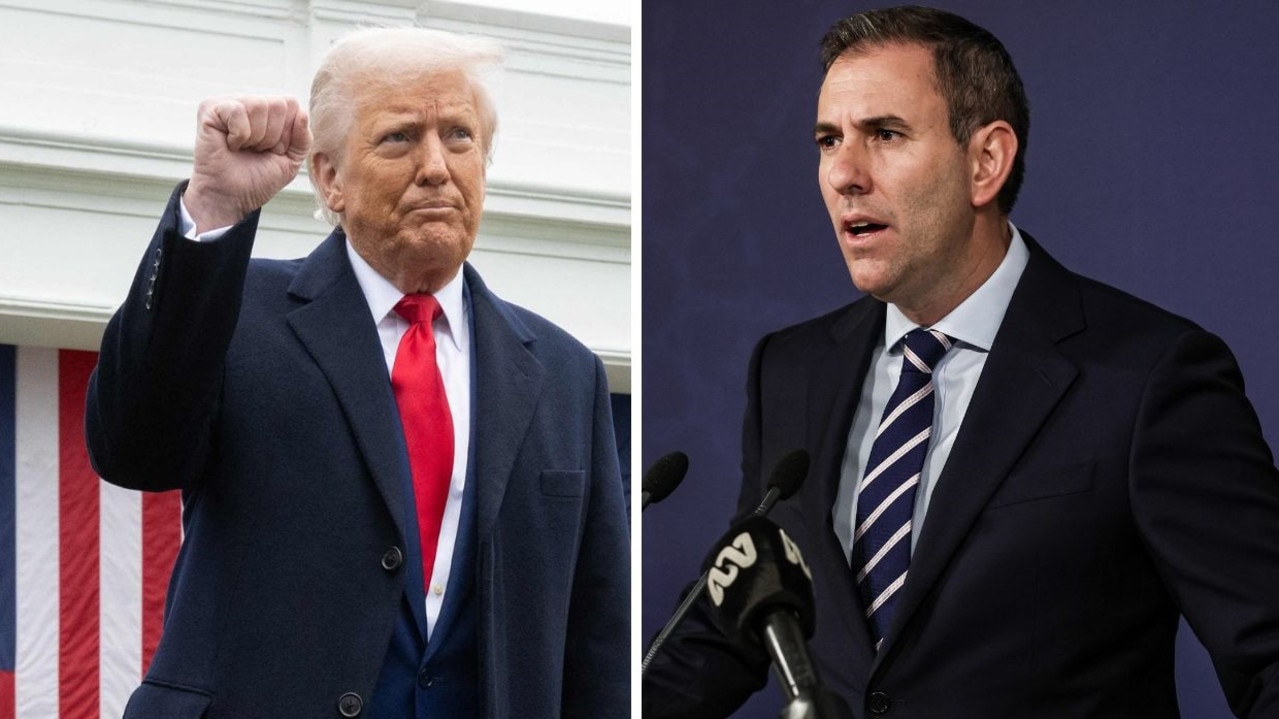US Solar Import Duties: Hanwha And OCI's Strategic Response

Table of Contents
The Impact of US Solar Import Duties on the Solar Industry
The US Department of Commerce has implemented various US solar import duties over the years, citing unfair trade practices by foreign manufacturers. These anti-dumping duties and countervailing duties target solar cells and solar panels, significantly increasing their cost. This has had a ripple effect throughout the industry. The history of these duties is complex, involving multiple investigations and challenges, but the core impact remains consistent: higher prices for consumers and businesses seeking to adopt solar energy.
The specific tariffs imposed vary depending on the country of origin and the type of solar product. This inconsistency creates complexities in supply chains and necessitates careful planning for project developers. The affected solar products primarily include solar cells and solar panels, the essential components of any photovoltaic system.
- Increased costs for solar projects: Higher import duties translate directly into increased project costs, making solar energy less affordable and potentially delaying the widespread adoption of renewable energy.
- Supply chain disruptions: Uncertainty surrounding tariffs disrupts the smooth flow of components, forcing companies to adjust sourcing strategies and potentially delaying project completion timelines.
- Reduced competitiveness of imported solar products: The added costs of imported products reduce their competitiveness against domestically manufactured solar equipment, influencing market share dynamics.
- Impact on renewable energy goals: Increased costs and supply chain issues hinder the progress towards achieving national renewable energy targets.
Hanwha Q CELLS' Strategic Response to US Solar Import Duties
Hanwha Q CELLS, a leading global manufacturer of solar cells and modules, has responded to US solar import duties through a multifaceted strategy focused on domestic manufacturing and engagement with policymakers. The company has made significant investments in US manufacturing facilities, aiming to circumvent the impact of tariffs by producing solar panels domestically.
This strategic move not only reduces reliance on imports but also contributes to the creation of American jobs within the solar sector. Further strengthening their position, Hanwha Q CELLS has actively engaged in lobbying efforts and worked closely with US policymakers to advocate for policies that support domestic solar manufacturing.
- Expansion of US manufacturing capacity: This strategy ensures a stable supply of solar products, reducing reliance on imports subject to duties.
- Creation of American jobs in the solar sector: This contributes to economic growth and strengthens the domestic solar manufacturing base.
- Partnership with US solar developers: This secures a reliable market for their domestically produced products, bolstering the entire domestic solar supply chain.
- Focus on value-added services: Beyond simply manufacturing, Hanwha Q CELLS offers a range of support services, building stronger relationships with clients.
OCI's Strategic Response to US Solar Import Duties
OCI, a major producer of polysilicon—a crucial raw material in solar panel manufacturing—has taken a different approach to navigating the US solar import duties. While not directly manufacturing solar panels, OCI's polysilicon production is integral to the entire solar supply chain. The company has focused its efforts on strengthening its position within this supply chain by increasing domestic production capacity and forging strategic partnerships.
Their strategy concentrates on securing a strong foothold in the US polysilicon market, reducing the vulnerability of US solar manufacturers to import tariffs on finished products. By providing a reliable and cost-effective domestic supply of this essential raw material, OCI is positioned to support the growth of the US solar industry.
- Investment in US polysilicon production: This reduces dependence on imported polysilicon and secures a reliable supply chain for US manufacturers.
- Strategic partnerships with US solar manufacturers: This creates synergies and strengthens the overall competitiveness of the US solar industry.
- Focus on cost reduction and efficiency improvements: This enables them to offer competitive pricing in the market, ensuring market share.
- Diversification of markets: While focusing on the US market, OCI diversifies its markets to mitigate risks associated with regional trade policies.
Comparing and Contrasting the Strategies of Hanwha and OCI
Hanwha Q CELLS and OCI have adopted distinct but complementary strategies in response to US solar import duties. Hanwha Q CELLS employs a vertical integration model, investing directly in US solar panel manufacturing, while OCI focuses on horizontal integration, strengthening its position as a supplier of a crucial raw material.
Hanwha's strategy emphasizes direct engagement with the US market through manufacturing and sales, while OCI's approach is indirect, supporting the entire domestic solar manufacturing sector. Both strategies, however, aim to mitigate the negative consequences of tariffs and enhance the competitiveness of the US solar industry. Their success will be influenced by long-term factors like technological advancements, policy changes, and global market conditions.
- Vertical integration vs. horizontal integration: Hanwha's vertical integration approach contrasts with OCI's horizontal focus on raw material supply.
- Focus on manufacturing vs. raw material supply: This highlights the different positions within the solar supply chain and their respective responses to tariffs.
- Market positioning and competitive advantage: Both companies aim for a strong position in the US solar market, though through distinct strategies.
Conclusion: Understanding the Long-Term Implications of US Solar Import Duties on Hanwha and OCI
The strategic responses of Hanwha Q CELLS and OCI to US solar import duties underscore the dynamic nature of the solar energy market. Their investments in US manufacturing and supply chains demonstrate a commitment to the long-term growth of the US solar sector. These actions not only mitigate the immediate impact of tariffs but also contribute to the overall resilience and competitiveness of the US solar industry. The long-term implications extend beyond the two companies themselves, influencing the broader landscape of solar panel imports and the future trajectory of renewable energy adoption in the US.
To stay informed about the evolving landscape of US solar import duties and the strategies employed by industry giants like Hanwha Q CELLS and OCI, it's crucial to conduct further research into the impact of tariffs on the US solar energy market. Understanding these complexities will be key to navigating the future of this critical sector. Stay informed and continue to research the evolving landscape of solar panel imports and related tariffs.

Featured Posts
-
 Primera For Women Natural Bladder Control Solutions
May 30, 2025
Primera For Women Natural Bladder Control Solutions
May 30, 2025 -
 Assessing The Damage 8 Ways Trumps Trade War Affects Canadas Economy
May 30, 2025
Assessing The Damage 8 Ways Trumps Trade War Affects Canadas Economy
May 30, 2025 -
 House Of Kong Gorillaz Mark 25 Years With Immersive Exhibition
May 30, 2025
House Of Kong Gorillaz Mark 25 Years With Immersive Exhibition
May 30, 2025 -
 Warna Baru Kawasaki Versys X 250 2025 Siap Jelajahi Segala Medan
May 30, 2025
Warna Baru Kawasaki Versys X 250 2025 Siap Jelajahi Segala Medan
May 30, 2025 -
 Edward Burke Jr S Dominance In Hamptons Dwi Cases
May 30, 2025
Edward Burke Jr S Dominance In Hamptons Dwi Cases
May 30, 2025
Latest Posts
-
 Carcamusas Un Plato Toledano Con Alto Valor Proteico Receta Completa
May 31, 2025
Carcamusas Un Plato Toledano Con Alto Valor Proteico Receta Completa
May 31, 2025 -
 Receta De Carcamusas Ingredientes Elaboracion Y Propiedades Nutricionales
May 31, 2025
Receta De Carcamusas Ingredientes Elaboracion Y Propiedades Nutricionales
May 31, 2025 -
 Descubre La Receta Autentica De Carcamusas De Toledo
May 31, 2025
Descubre La Receta Autentica De Carcamusas De Toledo
May 31, 2025 -
 Carcamusas Toledanas Receta Tradicional Y Alto Contenido En Proteinas
May 31, 2025
Carcamusas Toledanas Receta Tradicional Y Alto Contenido En Proteinas
May 31, 2025 -
 La Receta De Carcamusas Un Plato Tipico Toledano Rico En Proteinas
May 31, 2025
La Receta De Carcamusas Un Plato Tipico Toledano Rico En Proteinas
May 31, 2025
